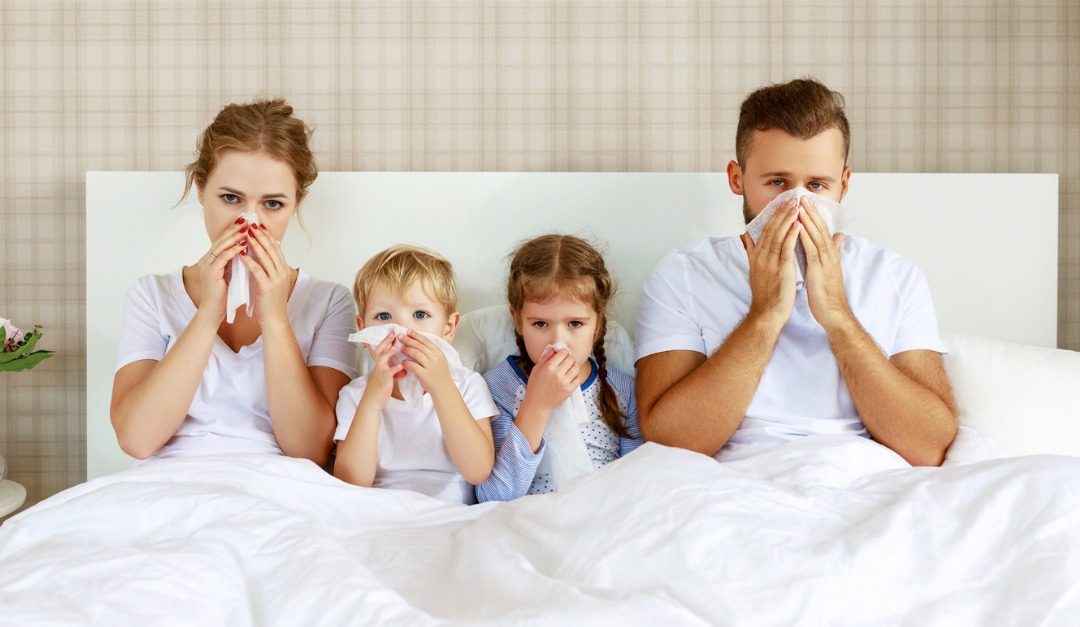The fall and winter months mean that Americans need to be prepared for the annual fight against colds and the flu. Understanding how these viruses are spread can help you and your family avoid contracting an illness or putting others at risk.
How to Prevent the Spread of Colds and Flu
The flu is caused by the influenza virus, and a cold can be caused by several viruses. Getting vaccinated is the best way for members of your family to avoid coming down with the flu. The vaccine is recommended for people six months or older. There is no vaccine to prevent a cold.
Good hygiene can reduce the spread of viruses. Wash your hands frequently with soap and water, especially after coughing, sneezing or blowing your nose. Scrub the backs of your hands, between your fingers and under your fingernails for 20 seconds. If you don’t have access to soap and water, an alcohol-based hand sanitizer is a good alternative. Disinfect surfaces that are frequently touched by multiple people, such as counters, tables, doorknobs and light switches, to prevent the spread of germs.
Being in good overall health can reduce the risk of getting sick. Make sure you and your family eat a healthy diet, exercise regularly and get plenty of sleep. If someone has allergies, keep them controlled. Respiratory inflammation from allergies can make a person more likely to contract a cold or the flu.
An individual who has the flu should stay home for at least 24 hours after a fever has ended. A sick person should avoid close contact, including hugging, kissing and shaking hands, to avoid passing a virus to others. If you need to care for a loved one with a cold or the flu, keep your distance or wear a surgical mask to avoid inhaling virus particles exhaled by the sick individual.
How to Treat Cold and Flu Symptoms
Cold symptoms usually occur gradually. A stuffy or runny nose and sore throat are common, but fever and body aches are rare. Flu symptoms tend to come on suddenly. Body aches are more common, and serious complications, such as pneumonia and bacterial infection, can occur.
A person with a cold or the flu should stay hydrated and get plenty of rest. Pain relievers can help with pain and fever, and nasal sprays or decongestants can relieve nasal symptoms. Antibiotics won’t help someone recover from a cold or the flu faster. If someone with the flu belongs to a group with a high risk of complications (people 65 and older, young children, pregnant women and people with some medical conditions), antiviral drugs can help.
Protect Your Family
During cold and flu season, the last thing you want is to have your whole family get sick. You may all be exposed to viruses at work or at school, so do everything you can to stay healthy. If you or your loved ones get sick, consult a doctor.




